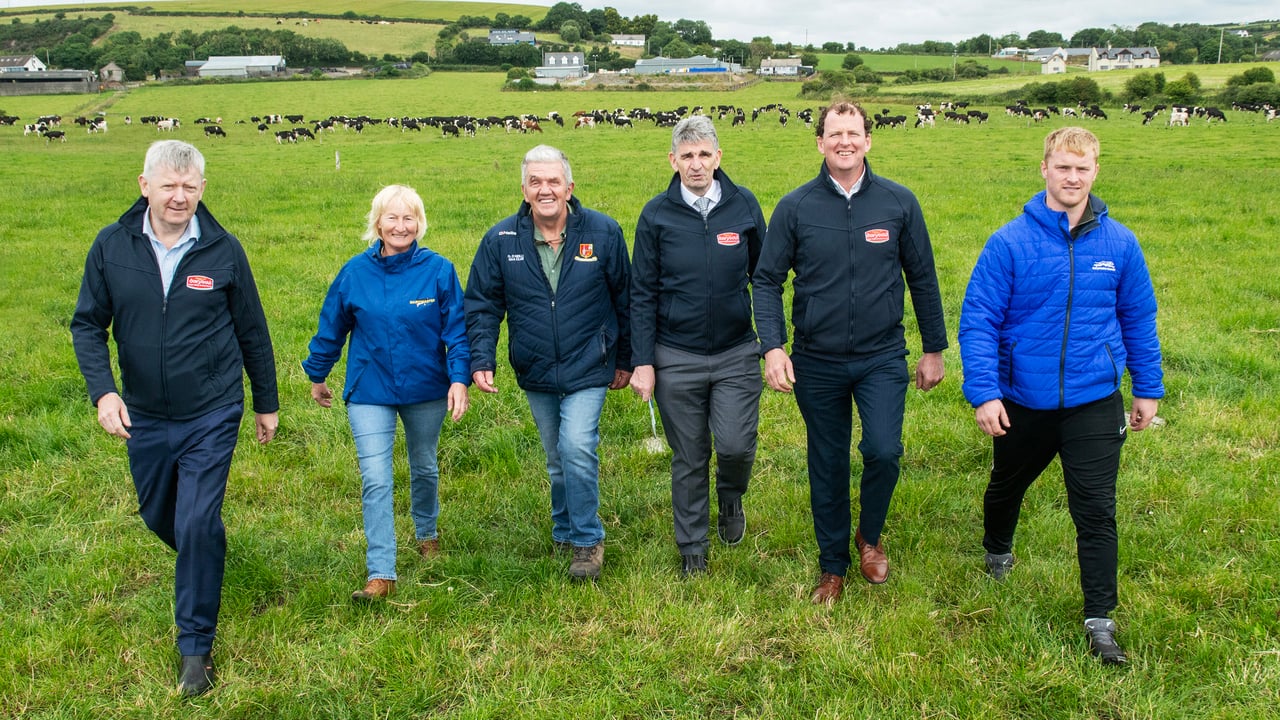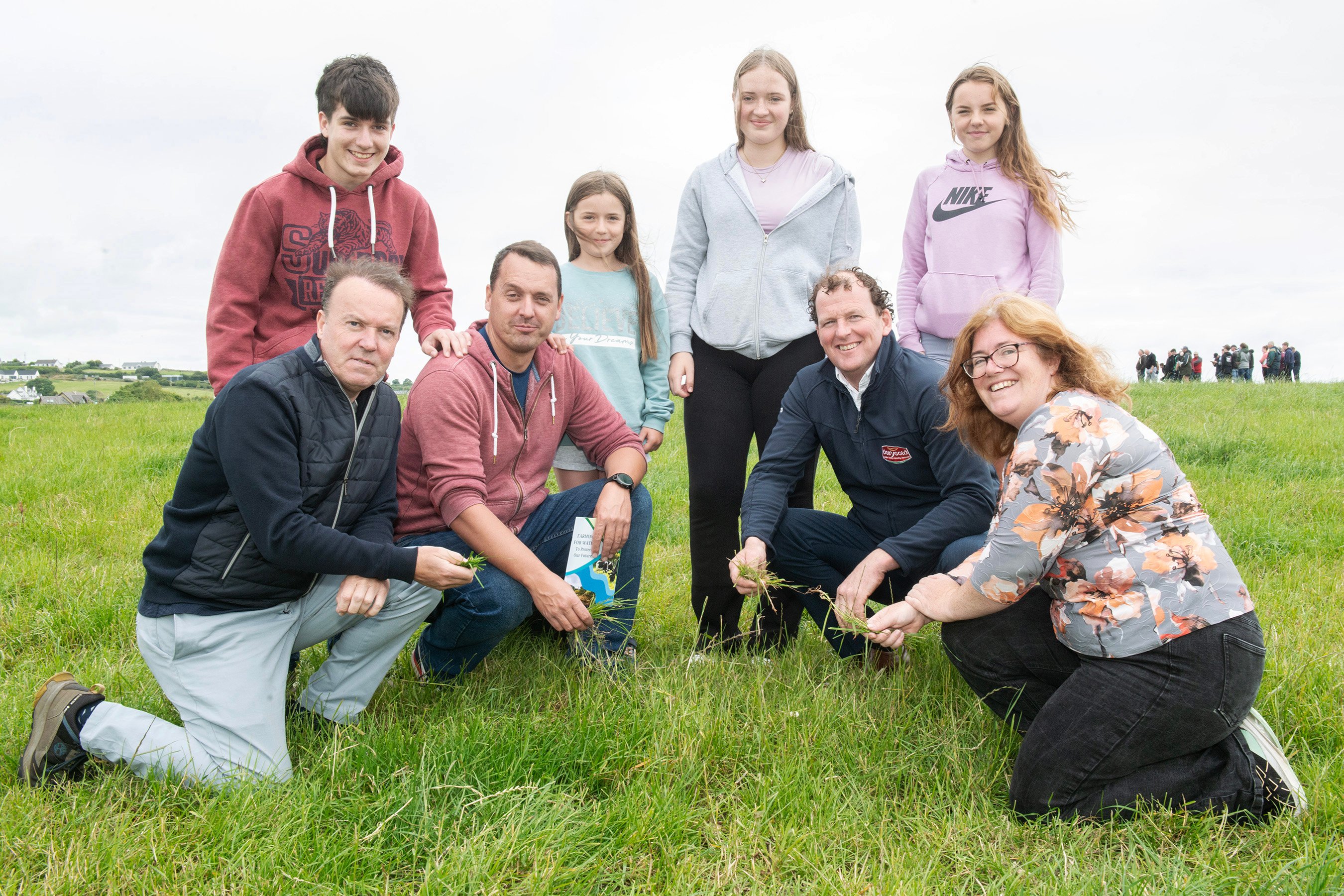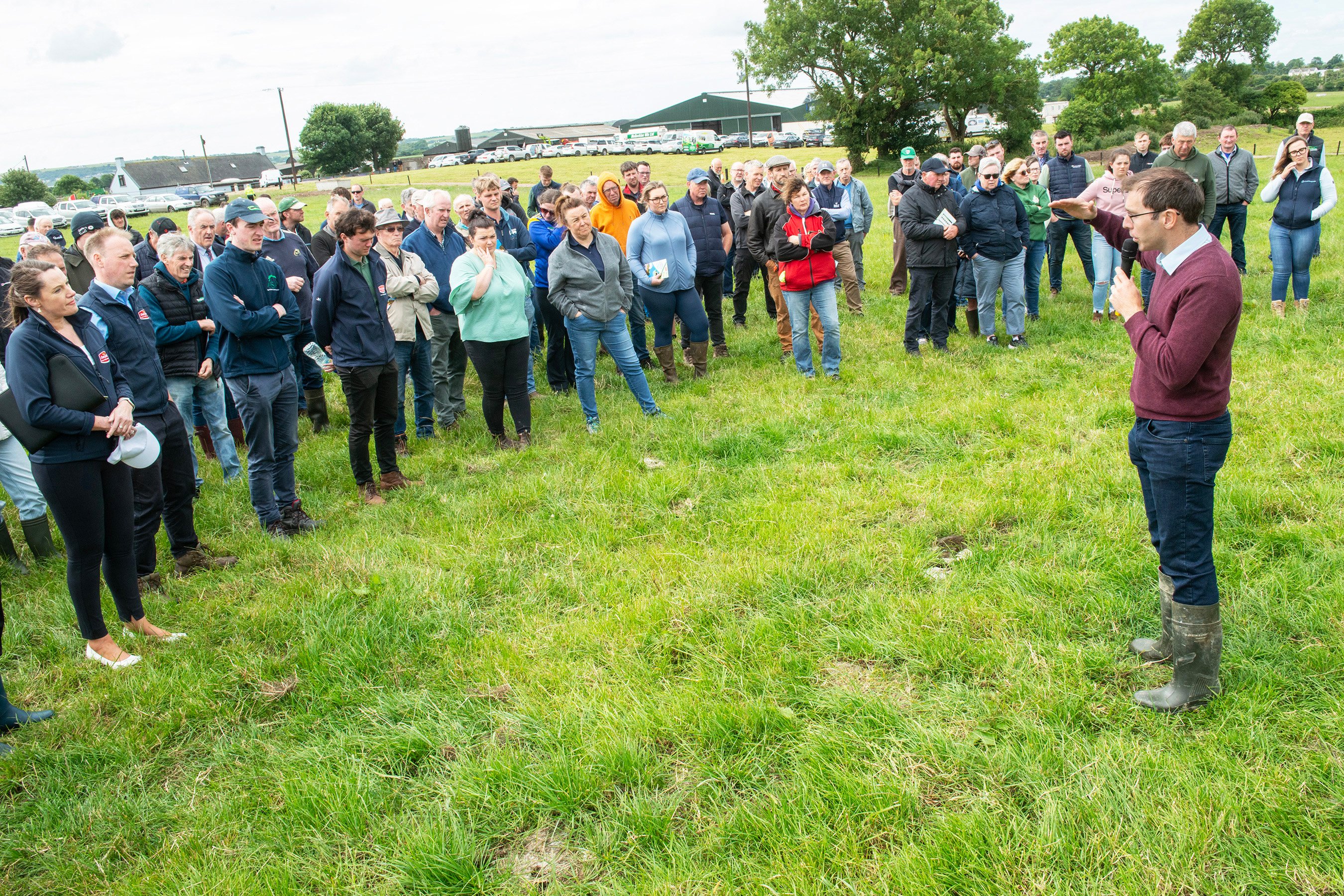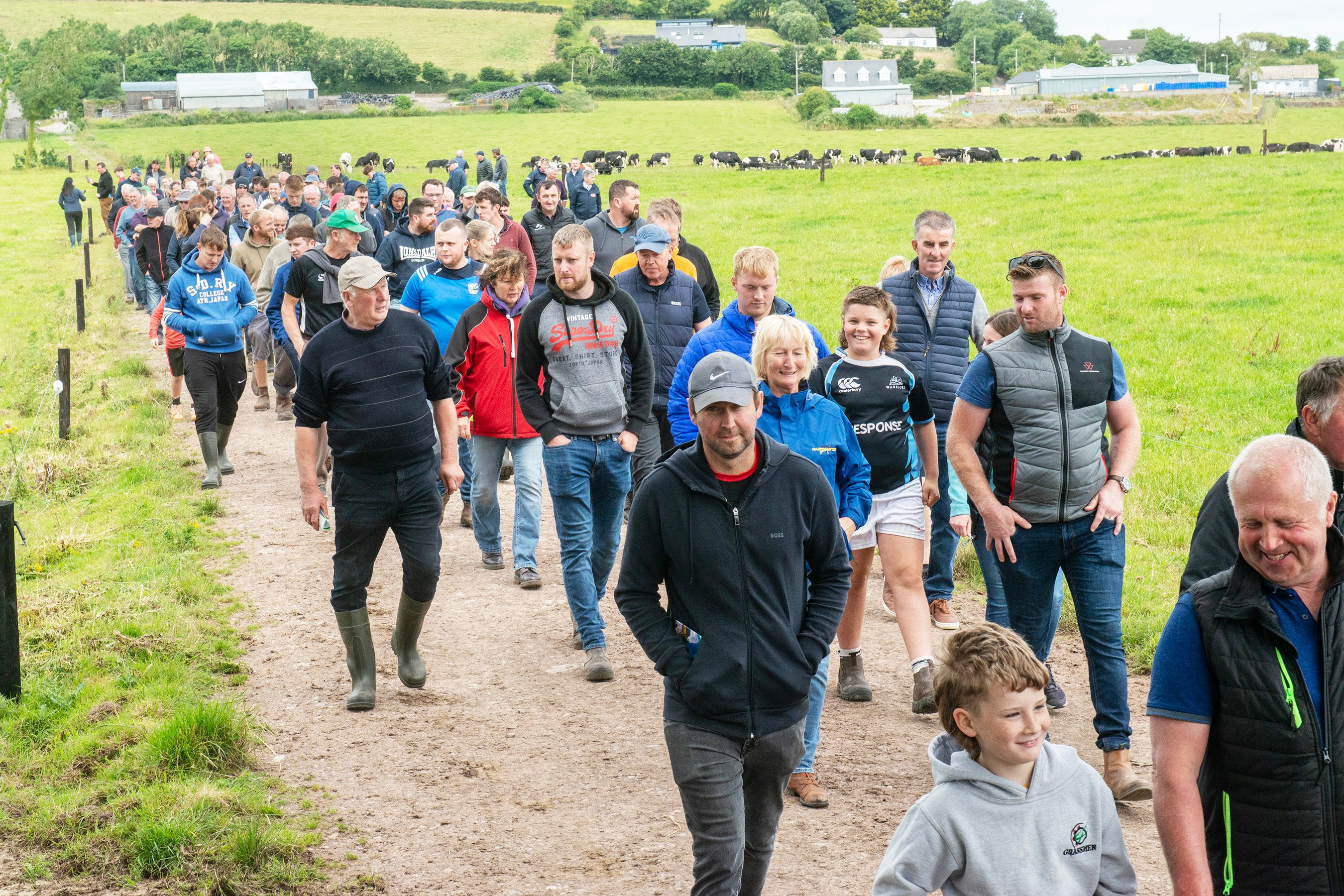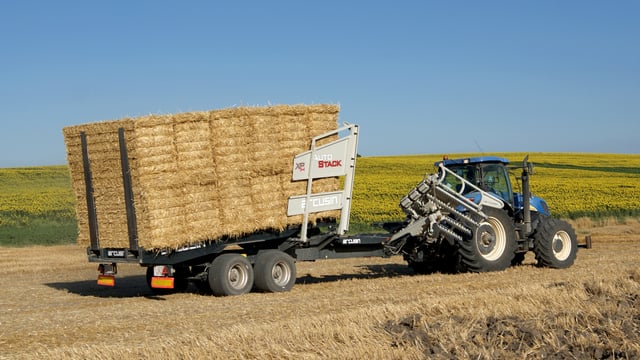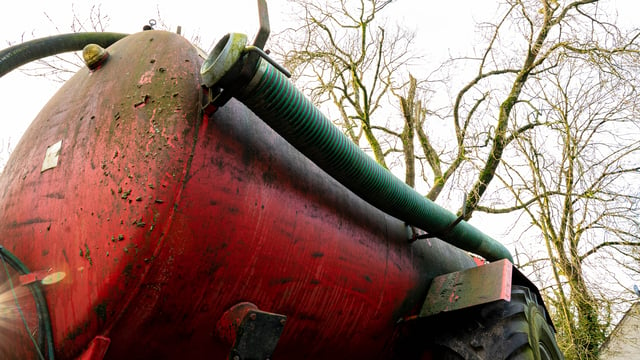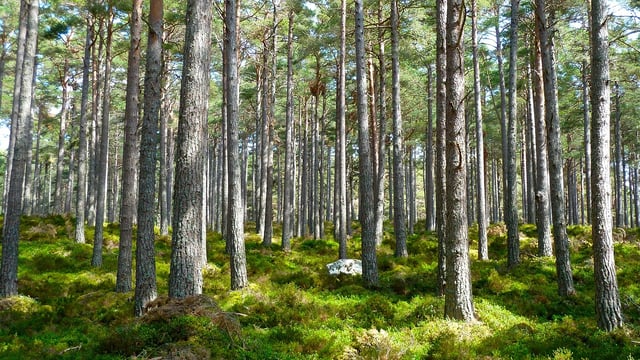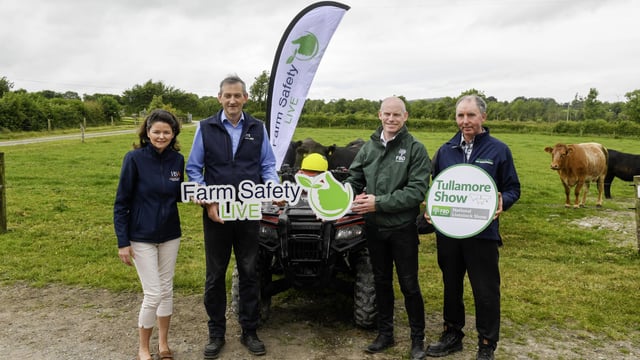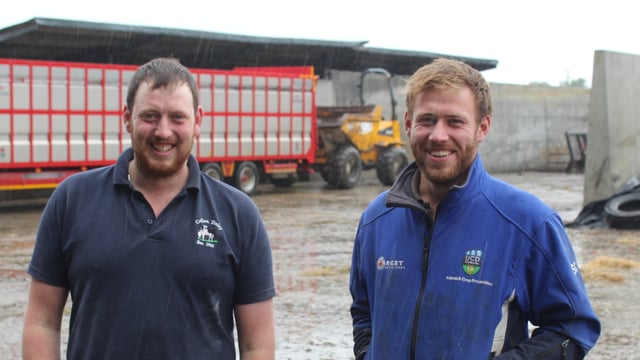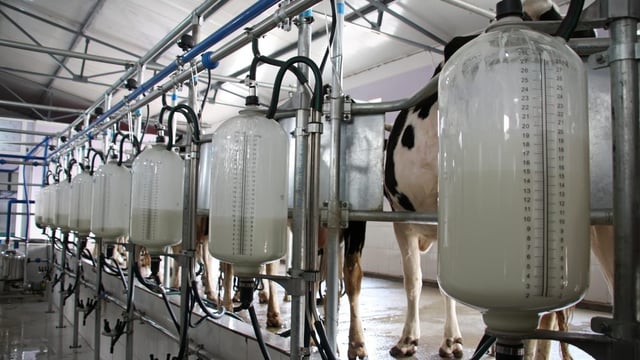Every farmer 'needs to pitch in' on water quality issues - Dairygold chair
Every farmer needs to "pitch in and do their part" - both derogation farmers and non derogation farmers - to work together on the issue of water quality, according to the chair of the Dairygold Co-operative.
Seán O'Brien today (Thursday, July 11) told Agriland that the nitrates derogation is "hugely important from a whole dairy industry point of view and the whole economy point of view."
O'Brien was speaking as Dairygold and Teagasc hosted a "Farming for Water: To Protect Our Future" event on the Dunne family farm in Ballyhimkin, Ladybridge, Co. Cork.
Dairygold
The open day highlighted the work being done by Dairygold and its members to improve water quality on farms to ensure the "sustainability of the dairy industry" and also gave the Dunne family an opportunity to highlight the latest advancements on their farm.
One of which included a new Dairymaster parlour installed in 2022, Dairymaster also hosted an open day at Dunnes Family Farm today.
According to Dairygold the open day event today is just one a number that has been organised to "protect and improve the future of dairy farming".
O'Brien said these events are important in the context of the "serious review of the nitrates derogation which will place in 2025".
"We need to be well equipped to tell the correct story when we present our case to our European counterparts."
"The Dunne's Farm is an excellent example of doing what we can to improve our own farms as they get out slurry a little but often, have buffer areas and have cambered their roadways, along with other great practices," the Dairygold chair added.
The first stand during the open day was hosted by University College Cork's Dr. William Burchill, Brendan Horan and Stuart Childs, both from Teagasc, who they talked about Nitrogen (N) surplus and how loss of nitrates to waters is the main pressure that affects water quality.
The N surplus is the amount of N potentially left in the soil in the autumn that can be washed out over the winter considering the amount of N entering the farm in fertiliser, concentrates, feed, and silage, etc.
This is then taken away from the amount of N that is removed from the farm in milking and livestock sales over a one year period.
Burchill detailed what Dunne can specifically do on his farm to reduce his N surplus which included farming at an optimal stocking rate, improving soil fertiltiy, incorporating clover, increasing milk and protein percentage output, along with optimising fertiliser usage.
The next stand looked into how nutrient pollution affected water quality as increased pollution causes excessive growth of vegetation within the river which was highlighted by Dairygold's, Ciara O'Donavan.
This vegetation alters the oxygen concentrations in the river which results in other life in the river struggling to cope with these large fluctuations in oxygen concentrations and move away from the river to die off, which lowers the status over time.
During the event there was also an interesting insight into the farming for water, eight actions for change which are on farm actions farmers can take to improve water quality and bolster the fight to keep the current derogation.
Dairygold highlighted new initiatives that it has introduced to help bolster that fight including hiring six new grassroots sustainable advisors, grassroots bonus and hosting water quality visits.
John Dunne finished off the open day by talking us through his farm system as he milks 263 cows on a total farm area of 134ha, which means he is stocked at 2.47 LU/ha.
His organic N in 2023 was 220kg/ha and he is an area where his organic N allowance is 250 kg/ha.
Dunne outlined that he is "always doing a small bit to try and improve things on his farm" and the nearest river to the farm has a good water quality status.
However he also expressed his fears of the impact the changes in derogation may have on his farm and how this could affect his recent investment decisions.
Dunne said that reducing to 170 kg/N/ha would result in him having to reduce his cow numbers by 23% - this in turn would drop milk volume down by 23%, it would also bring up the cost of production by 5% and bring down his net profit by 32%.
Teagasc dairy specialist, Stuart Childs, also warned that "all farmers need to act now to protect our water and sustain the derogation".
"Because if you look around your yard, no matter how good you are, there is always something that can be done."
"The show of numbers today is a testament to how concerned people are, showing that they want to make a difference" Childs told Agriland.

